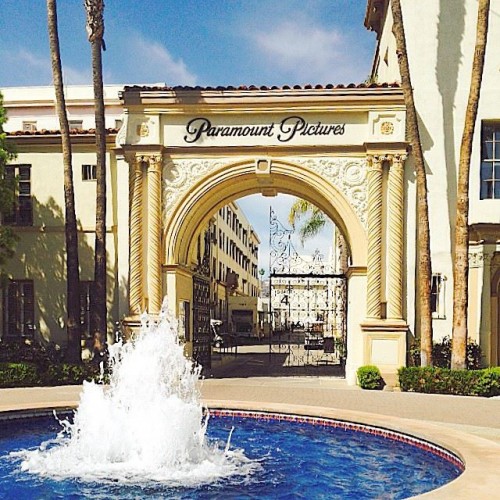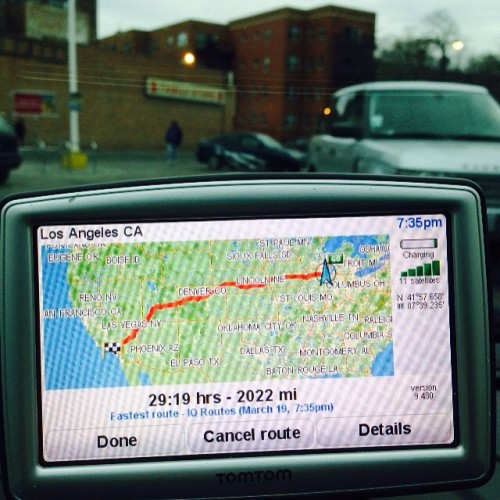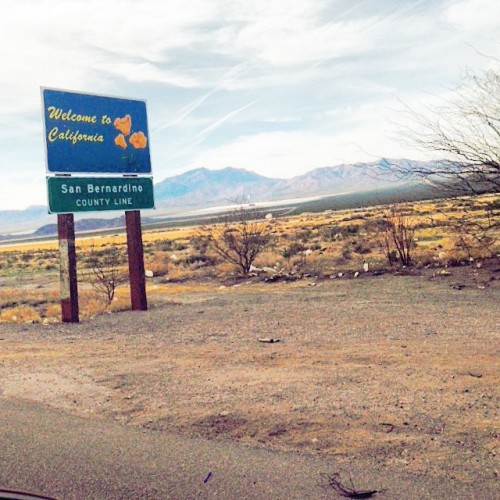The Semester in L.A. Experience So Far
It’s been about three weeks since our producing cohort arrived in Los Angeles, California to complete one of our final adventures in the program. We still have a lot to accomplish, such as our short thesis film deliverables and our long-form narrative package, but we have finally made it to Columbia’s Semester in L.A. program!
For the last eight weeks of our MFA program, our cohort is to spend the time taking classes at the school’s Hollywood branch located right inside Raleigh Studios’ lot. We get to show up to the lot just as any employee, cast, or crew member would. We take classes taught by L.A. industry professionals and have allotted free time in our schedules so that we can work internships or assistant positions.
The structure of the Semester in L.A. experience for the MFA creative producers sets us up to understand how the L.A. industry works and how films get made here. Presently for our cohort, the producers attend class on Mondays, Tuesdays, and Wednesdays. These classes each range 2-3 hours in length and we remain available the rest of the day for possible tour opportunities or guest speakers.
Each class focuses on a category within producing: Business Affairs, Long-Form Narrative Packaging, and Entrepreneurial Producing. The teachers of these classes have expertise within these subjects and their classes are taught using their own experiences as case studies for us to start exploring for ourselves.
The experience is not just about making films in Los Angeles but also about how to survive on a student income as an aspiring filmmaker in Los Angeles. The program in Chicago up until this point has shied away from providing a lot of information about what our experience in Los Angeles will be like. Perhaps this is by design, perhaps not. Either way, our student approach to the program not only includes attending class but also includes a lot of self-discovery in terms of where and how to live in L.A., how to interact with people in and outside of the industry, how to get a job, what those jobs require, and what kind of career path that may lead you down.
In tying up our time in the MFA program, it is also heavily encouraged that our next step is to obtain an internship or an assistant position within a production company, studio, or agency. If we choose to take this route, then all we need to do is find ourselves an internship or work opportunity. Sometimes, in the case of unpaid internships, which are pretty common, we just need to sign up for an additional internship credit with the school and we’re ready to go. This opportunity may or may not lead you to a job but if you get to know a lot of people and work to your fullest to prove what you’re made of, then you have a greater chance of working your way up the ladder in the business.
There are a lot of different types of opportunities that exist for us but it is important for us to understand what our strengths and weaknesses are and what our goals and aspirations could be. Knowing these things are what equips us with direction as we enter the professional world. We have learned how important skills such as writing coverage, pitching ourselves as filmmakers, and pitching our work are in surviving professionally. These skills are foundational even in terms of being an assistant or intern so it’s good to practice often.
Even living in Los Angeles means leading a specific lifestyle as every place, event, and meeting you go to is an opportunity for you to pitch and present yourself as a filmmaker. Filmmaking is a business of relationships—who you know, and who knows you—the ability to network is vital. Successful relationships like these allow you to show the expansion of yourself not only as a business person but as the creative mind that you are. This is a tricky thing to learn how to navigate and fresh faces are often warned to keep in mind that everyone is your buddy but no one is your friend. Hollywood is a tough business like that. Not everyone can make it but if you work hard, you have a chance to go as high or as far as you want.
After graduation, our cohort creative producers plan to head out and make something happen for themselves. L.A. may not be the place they end up if they decide to make films in more independent settings. A handful of classmates are hoping to take their degree and teach at other universities and some even hope to start their own production companies and make their own content. Whichever way they go, the possibilities are endless. As for me, I’m still exploring my options but I have a few potential routes in mind.
We’re constantly being told what an exciting crossroads our industry is at, and how we are going to be the future of the film industry. Filmmaking is a rapidly expanding field. Like many of our instructors and guest speakers have discussed, there are a lot of new types of media out there beyond just movies in theaters or television on screens at home.
Producers can make content for growing platforms of all different kinds. Hosting platforms such as Netflix and Amazon are growing incredibly popular, the same of which can be said for more mobile-friendly platforms such as Vine, Snapchat, YouTube, Vimeo. Social media platforms like Instagram, Facebook, and Twitter have become launching grounds for all kinds of new content.
Even devices like our phones and tablets, eventually things like our watches and glasses, all have created places where we desire more content. The opportunities to produce new media are steadily increasing with the impact of rapidly growing technologies. In fact, the old studio system as we know may even be swallowed up by it. There are a vast number of trends in media and as they continue to evolve, we may find that it is changing the very way we communicate and perhaps even education itself will be something adopted by content creators.
With only six weeks left to go in our program, we’ve got to get to work exploring the rest of what the world of L.A. has to offer but I was able to catch up with a few of the producers to hear what advice they had for future cohorts planning their journeys out west:
- Have a good idea and understanding of your individual strengths/weaknesses, and be able to speak clearly about your goals and aspirations.
- Writing coverage is a core skill to have for almost any producing-related internship or assistant position in L.A.
- Pitching yourself and pitching your work needs to be practiced regularly since it becomes necessary not just in an interview situation but in your everyday life as a producer in L.A.
- Networking and building relationships is crucial to being a successful producer in the industry and with tricky avenues, it’s good to understand how this works in L.A.
- Los Angeles is a really expensive city; more so than Chicago. Future L.A. cohorts should be prepared to spend a lot not only in their move to L.A. but in living expenses and transportation expenses.



